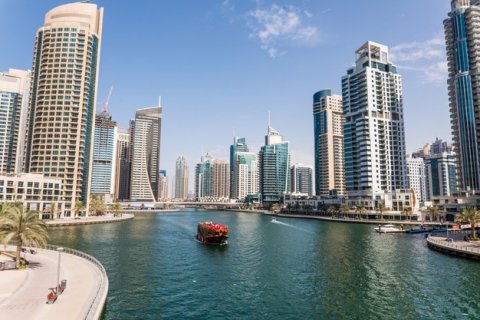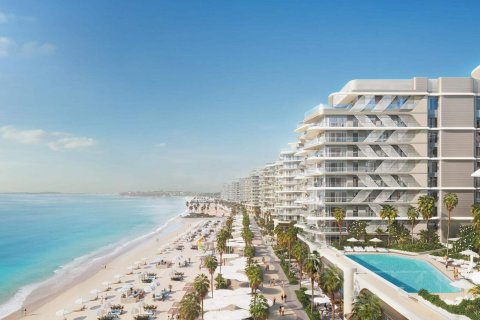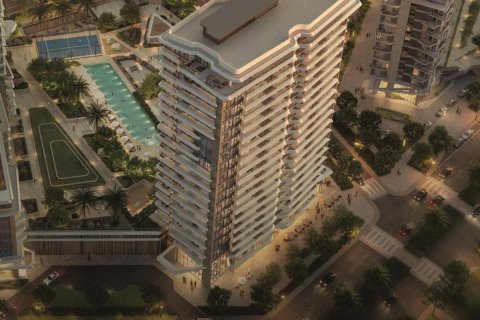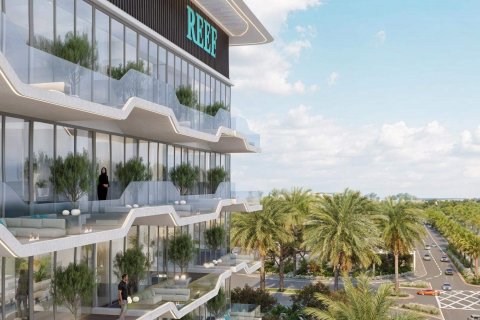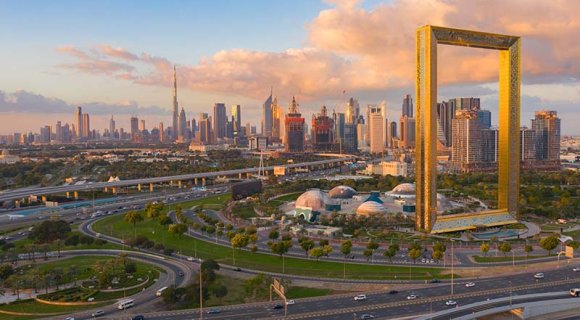
The expectations and forecasts of numerous analysts have not been confirmed, as the Dubai property value has continued to grow rapidly. No price drop was recorded in either Q1 or Q2 of 2024. The local market has once again reached new records, surpassing the previous year's figures.
The steady rise in Dubai property values can be justified by the current supply and demand dynamics. The city's population continues to grow. In Q1 2024 alone, it welcomed 26,000 new residents. However, the supply of ready-to-move-in properties has not kept pace with this trend, leading to an increase in both prices and rental rates.
Dubai's strategic location and business-friendly environment make it an attractive investment destination. The UAE's removal from the Financial Action Task Force's grey list in February 2024 has further boosted investor confidence. Favourable tax policies, free economic zones, and the emirate's growth as a top destination for tourism and immigration are boosting the local property market.
What kind of value dynamics will the emirate real estate show shortly? Will the sector start to stabilise? Several scenarios outline how events may unfold.
Content
Indicators for the first half of 2024
Many experts in the Dubai property market predicted a decline in value at the beginning of the year. Factors such as inflationary spikes, the Palestinian-Israeli conflict and unpredictable changes in global bank rates were cited as potential reasons for this anticipated downturn. However, the indicators from the first three months did not match analysts' expectations, as the market's upward trend continued.
As per statistics from the DXB Interact online platform, 36,506 transactions were recorded in the Dubai property sector from January to March 2024, reflecting a 17.5% year-on-year increase. In the second quarter, the number of transactions reached 43,261, an increase of 43.8% year-on-year.
In July, the average price per square metre in the emirate reached AED 17,513 (USD 4,768), setting a record high for the last decade. Natalia Bakalym, the sales department manager at Object 1 development company stated that it’s highly unlikely that Dubai property prices will decline given the current statistics.
- At high risk of a bubble
- Overvalued market
- Healthy market with fair prices.
Dubai is ranked 23rd out of 25 in the green zone of fair prices, with a coefficient of 0.14. This indicates that the risk of a bubble is among the lowest in the world. By comparison, Zurich ranks 1st in the red zone with a coefficient of 1.71. Tokyo, Miami and Munich are other cities in the red and orange zones, where real estate is overvalued and the risk of a bubble is much higher than in Dubai," says Natalia Bakalym.
Market cyclicality
Experts have speculated about a potential decline in Dubai property prices in 2024 based on the theory of market cyclicality. This theory outlines three cycles: the first phase is rapid growth, the second phase is decline and the third phase is a new stage of recovery at a higher rate..
The first phase culminated in 2009, followed by the expected decline in value against the backdrop of the global financial crisis. Prices then resumed their rise, reaching record highs in 2014, before falling again in line with oil prices. The third stage was triggered at the end of the COVID-19 pandemic and is still ongoing.
Some analysts believe that the peak of growth characteristic of the third cycle will occur between 2023 and 2024. It’s expected that property values will not experience a sharp decline but will undergo a correction, after which another cycle will begin, supported by the continued inflow of foreign investment.
Is the theory of cycles no longer relevant?
More and more experts agree that the Dubai property sector has moved beyond cyclical dynamics and has reached sustainable growth. Adherents of the alternative viewpoint highlight that most properties today are bought for personal use, primarily for relocation and residential purposes. This trend ensures a prolonged increase in value.
Current property prices in most parts of the emirate have surpassed 2014 figures. This is due to the enduring interest of European and South Asian investors in local projects.
Another factor influencing market growth is Dubai's increasing population, fuelled by government initiatives. Under the government programme, 5.8 million people will live in the emirate in 2040.
The rapid population increase will contribute to the high demand for the 40,000 properties commissioned in 2023 and the 39,000 properties scheduled for delivery in 2024. Some analysts predict value adjustments may occur between 2026 and 2027 due to the high supply level.
What is the emirate government doing to preserve the market?
Natalia Bakalym said that current market trends in Dubai differ significantly from those of past years.
The reforms aimed at preserving the market include:
- Sanctions for companies that fail to meet construction schedules;
- Raising the tax rate on the real estate ownership transfer to 4% of the value;
- Mandatory use of escrow accounts for development companies.
Amid such measures, Dubai's property market is steadily developing and investors are not wary of another downturn.











































